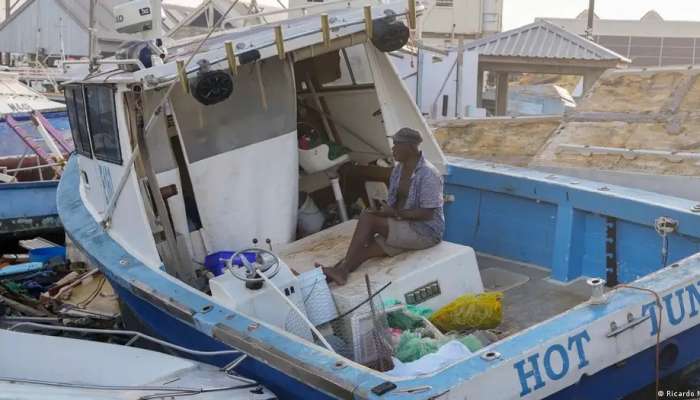
Barbados: Hurricane Beryl left a trail of destruction across the Caribbean after it made landfall on Monday.
The storm, which was updated to a Category 5 status, ripped doors off their frames, shattered windows and upended roofs off people's homes, scattering debris from Grenada up to St Lucia.
"This is an extremely dangerous and life-threatening situation. Take action now to protect your life!" the US National Hurricane Centre said on Monday.
"Beryl is expected to remain an extremely dangerous major hurricane as it moves across the Caribbean Sea later this week."
Late on Monday night, it added: "Beryl is now a potentially catastrophic Category 5 hurricane."
Authorities on other Caribbean countries have issued warnings as Beryl moved north, including a hurricane warning in Jamaica and a tropical storm warning in Haiti.
The National Hurricane Centre added that "Beryl is expected to remain an extremely dangerous major hurricane as its moves."
"We have to wait this monster out," said St Vincent and the Grenadines' Prime Minister Ralph Gonsalves.
Prime Minister of Grenada Dickon Mitchell said one person had died. However he could not yet say if there were other fatalities because authorities had not been able to assess the situation on the islands of Carriacou and Petite Martinique.
"We do hope there aren't any other fatalities or any injuries," he said, adding that the government will send people first thing Tuesday morning to evaluate the situation on the islands.
Unseasonably strong
Beryl is the earliest Category 5 observed in the Atlantic basin on record, and only the second Category 5 hurricane in July after Hurricane Emily in 2005, according to the National Hurricane Center said.
It could dump 4 inches to 8 inches (10 cm to 20 cm) of rain on Wednesday, rising to as much as 12 inches (31 cm) in some areas, it said.
"Only five major (Category 3+) hurricanes have been recorded in the Atlantic before the first week of July," hurricane expert Michael Lowry said on social media.
Experts said the unusual weather pattern was a result of climate change.
"Climate change is loading the dice for more intense hurricanes to form," Christopher Rozoff from the National Center for Atmospheric Research told Reuters.
Wild weather like this is predicted to continue in future.
"This is the type of storm that we expect this year, these outlier things that happen when and where they shouldn't," University of Miami tropical weather researcher Brian McNoldy told the Associated Press.
"Not only for things to form and intensify and reach higher intensities, but increase the likelihood of rapid intensification. All of that is just coming together right now, and this won't be the last time."